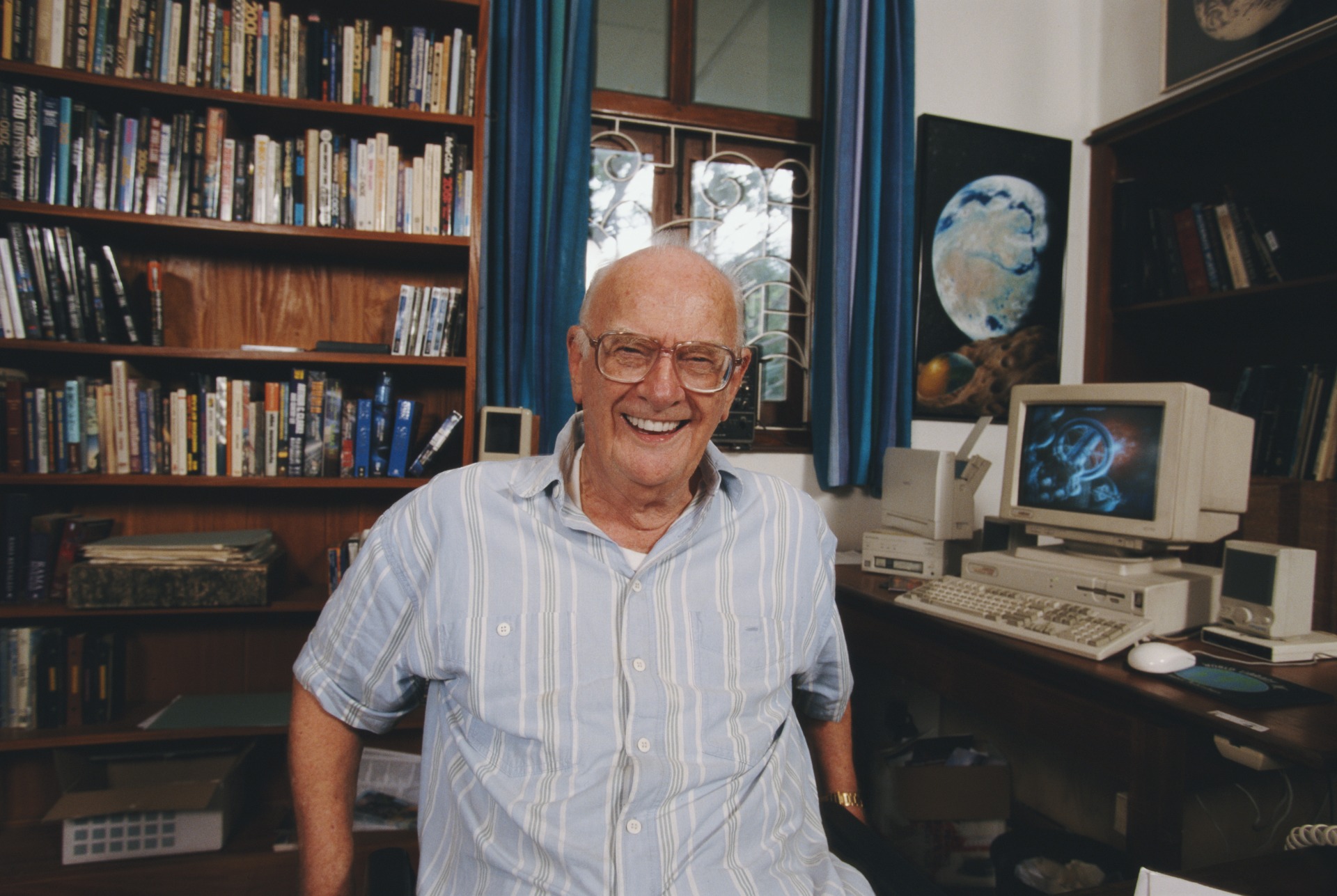
Arthur C. Clarke: Visionary of the Future and Cosmic Exploration

Arthur C. Clarke (1917–2008) was one of the most influential and respected science fiction writers of the 20th century. Known for scientific precision, visionary capability, and philosophical depth in his works, Clarke shaped popular perceptions of space travel, cosmic exploration, and humanity's role in the universe. Authoring over 100 books and numerous scientific essays, his imagination and insights significantly inspired generations of scientists, explorers, and science enthusiasts.
Life and Education:
Clarke was born in England in 1917, showing a fascination with astronomy and science from a young age. During World War II, he served in the Royal Air Force, working with radar, an experience that profoundly influenced his vision of telecommunications. After the war, he earned degrees in physics and mathematics from King's College London, solidifying his academic foundation for future literary and scientific works.
In 1956, Clarke relocated to Sri Lanka (then Ceylon), where he lived until his death. This voluntary exile reflected his contemplative lifestyle dedicated to research and writing, away from Western frenzy.

Major Works and Contributions:
Clarke's literary output is extensive and varied, but some works stand out notably:
2001: A Space Odyssey: Developed in collaboration with filmmaker Stanley Kubrick, this masterpiece explores human evolution, artificial intelligence, and cosmic mystery. Both the book and film permanently transformed science fiction, placing existential questions at the heart of storytelling.
Rendezvous with Rama: This book details the discovery of a massive alien cylinder traversing the solar system, offering a detailed and scientifically plausible vision of humanity's first contact with an advanced extraterrestrial civilization. The work is renowned for rigorous scientific detail and its capacity to provoke reflection on the unknown.
Childhood's End: A profound novel about the peaceful arrival of aliens on Earth who gradually guide humanity toward a utopian future, raising complex issues about freedom, identity, and human destiny.
The Fountains of Paradise: Introducing the revolutionary concept of a space elevator, Clarke anticipated modern discussions about space engineering and orbital infrastructure, inspiring real-world research in this direction.
Clarke and Satellite Communication:
One of Clarke's greatest scientific achievements was his pioneering contribution to the concept of satellite communication. In 1945, he published an article in "Wireless World" titled "Extra-Terrestrial Relays," proposing using geostationary satellites for global telecommunications. His vision became reality and is now crucial for modern communications, with the geostationary satellite belt commonly referred to as the "Clarke Belt."
Philosophical and Scientific Themes:
Clarke was known for weaving profound philosophical questions into his narratives. His favored themes included:
Human and Cosmic Evolution: Clarke frequently suggested humanity's destiny lies among the stars, viewing human evolution as a continuous and cosmic process.
Extraterrestrial Contact: He often addressed philosophical, social, and political implications of first contact with aliens, always from a rational, scientific perspective.
Technology and Ethics: His stories explore technology's impact on human society, including ethical and moral questions arising from scientific advancements.
The Unknown: Clarke celebrated human curiosity and the necessity of exploring the unknown, consistently emphasizing that the universe is vast and filled with mysteries yet to be revealed.
Influence and Legacy:
Clarke profoundly influenced literature and modern scientific thought. His method of predicting possible futures, based on solid science and rational speculation, set high standards for contemporary science fiction. Additionally, many of his technological predictions came true, solidifying his reputation as a "scientific prophet."
Clarke also received numerous honors, including a knighthood from Queen Elizabeth II, international recognition as a science communicator, and a lunar crater named in his honor.

Conclusion:
Arthur C. Clarke was more than just a science fiction writer; he was a visionary thinker who used literature to deeply explore humanity's potential futures. His work remains relevant not only for its scientific accuracy but especially for its unique ability to question our role in the cosmos, our ethical values concerning technology, and our potential as a species.
Through his rigorous and philosophically grounded imagination, Clarke invites us to look upward and beyond, to dream of possible worlds, and to confront the unknown with courage, curiosity, and humility.

